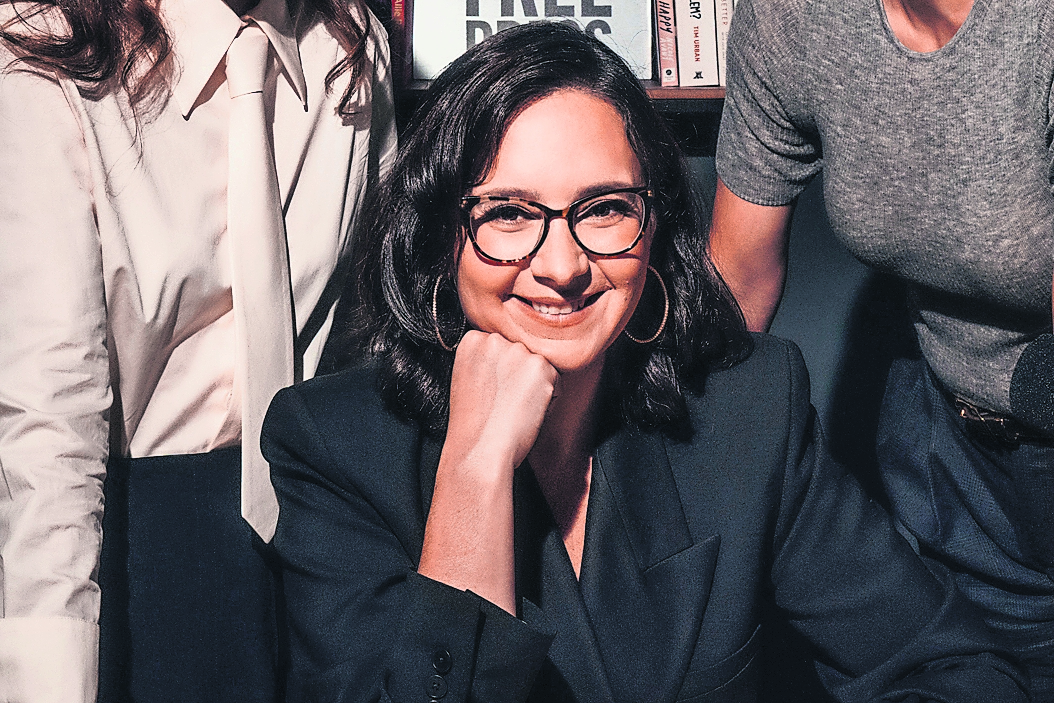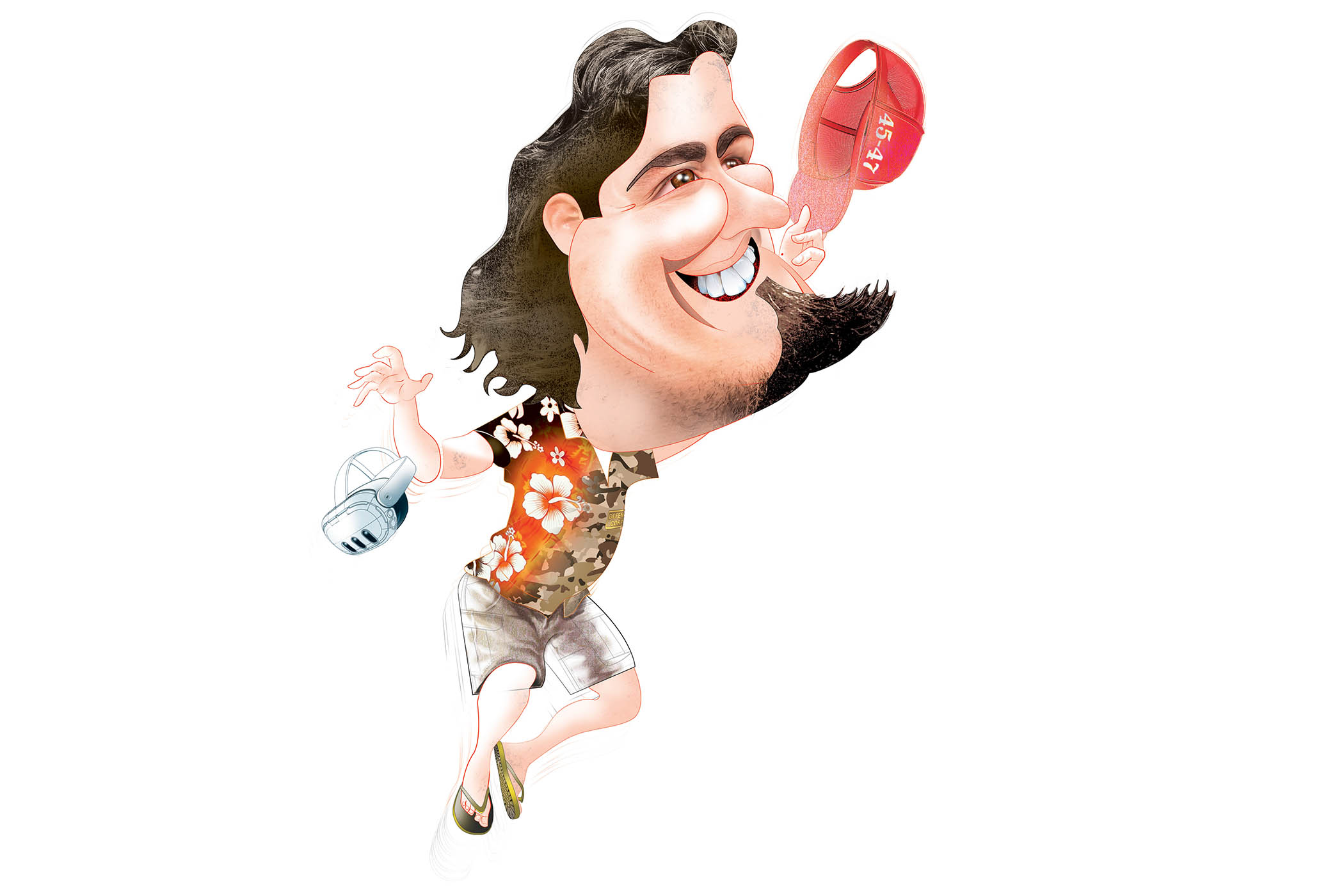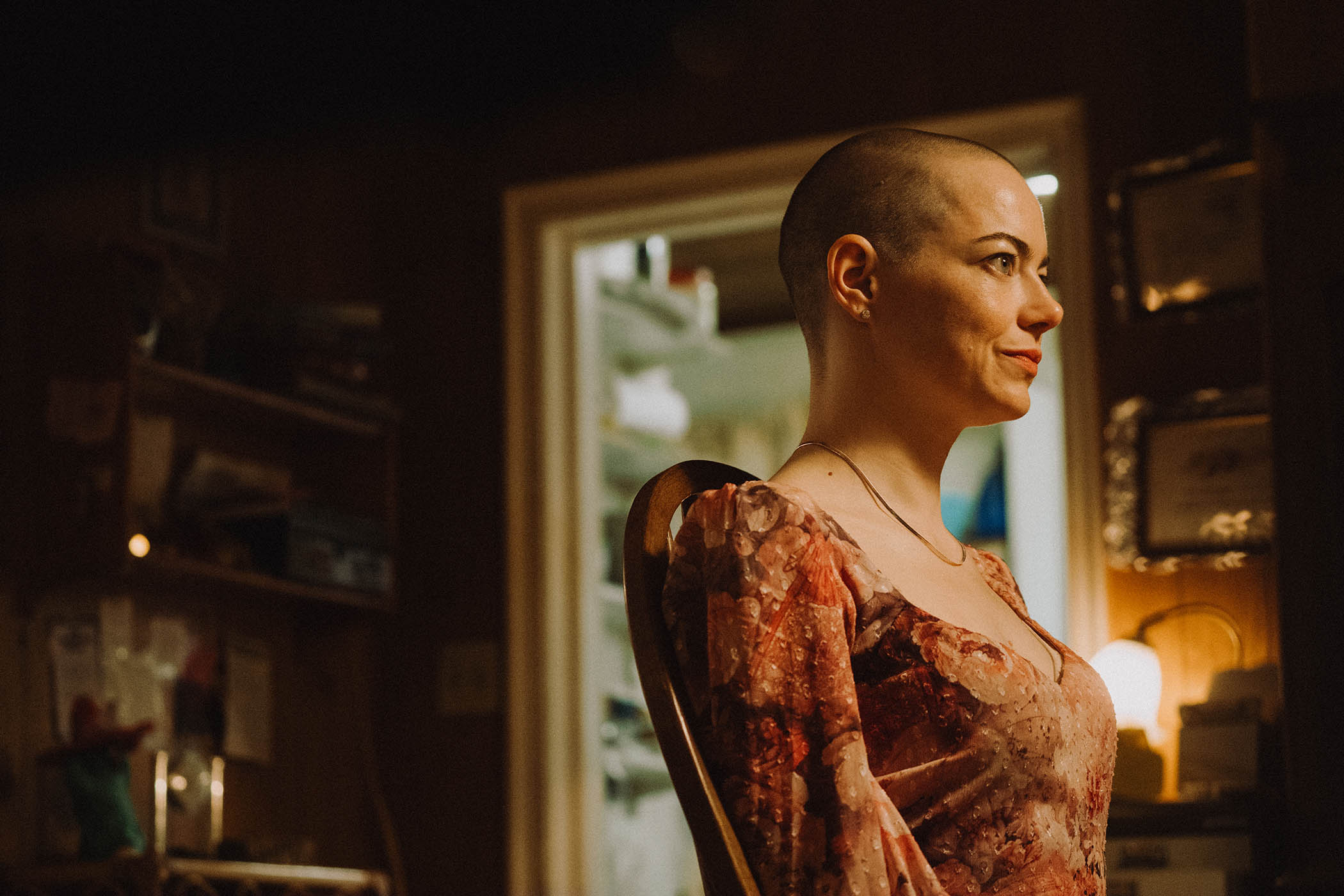You can listen to Jonathan Lewis and Giles Whittell’s investigation on this week’s episode of The Slow Newscast, The shakedown: Donald Trump vs. the media, here.
When it was first rumoured that Bari Weiss might take charge of America’s most talked-about newsroom, hearts sank across the liberal US.
“A throwing-up emoji is not enough of a reflection of the feelings,” one CBS News employee texted. Jamelle Bouie, a New York Times columnist, called it “a heartwarming story of how being an unethical and talentless hack is no barrier to success”.
And then a strange thing happened. Media watchers on both sides of the political divide became cautiously optimistic.
President Donald Trump is engaged in a multipronged attack on media outlets that challenge him, suing the New York Times and the Wall Street Journal, and extracting eight-figure bounties from ABC and CBS to settle lawsuits based on little more than his hurt feelings.
Weiss is founder of the right-leaning Free Press website, but the assumption that her move to CBS News is another sop to Trump has been questioned. Jacob Weisberg, former editor-in-chief of Slate, said he admired what Weiss created. Daniel Suhr, a campaigner against leftwing media bias, called the move “a significant step toward better broadcasting for the American people”.
After graduating from Columbia University, Weiss worked at the Wall Street Journal, where she is said to have sobbed at her desk when Trump won his first term in office. She later joined the New York Times, earning a coveted spot as an opinion columnist – but her tenure was turbulent.
In 2020, she resigned, citing what she considered a hostile environment and a backlash over her more conservative views. She founded Free Press on Substack the following year. It would go on to become the most successful newsletter on the platform.
Of the three “legacy” broadcasters – CBS, ABC and NBC – CBS has the smallest nightly news audience, and all are suffering. In June, social media overtook TV, websites and apps as Americans’ main news source, according to Reuters Institute.
Weiss has nevertheless grown Free Press into a digital media brand with more than 1.5 million readers and $15m in annual subscriptions. As well as hiring Weiss, CBS has bought Free Press for $150m in cash and stock.
“Under co-founder Bari Weiss’ leadership, [The Free Press] has built one of the most dynamic news organisations in the country, one that resonates with audiences of all ages and perspectives,” David Ellison, CBS’s new owner, wrote in a note to staff last week. Ellison is the son of Larry Ellison, the Oracle software-giant founder who is currently the world’s second richest person and has grown close to Trump in recent years.
In a note to Free Press staff as CBS confirmed both the company’s acquisition and her appointment, Weiss wrote that the outlet had “uncovered an America hiding in plain sight” – an idea that resonates, especially on the right. “There’s a strong feeling on the part of the American people that much of the news media is just serving one political party,” says Suhr, citing a recent Gallup poll that found trust in the media at record lows.
Weiss has built a personal as well as a media brand from Free Press. She is fiercely pro-Israel to the extent one critic says her world view is based on opposition to pro-Palestinian campus protests, and she has been scornful of those who called for defunding the police after the 2020 murder of George Floyd. But she’s not reflexively pro-Trump. “The Free Press is not a pro-Trump organ,” Weisberg says.
Unlike Free Press, CBS has a complex corporate structure and its owners have a direct line to the president. And Weiss has no experience in television or breaking news. She’s now expected to lead both.
Critics and admirers alike will be watching carefully to see if she can do that and at the same time speak truth to power. “What looms over American culture at the moment is an authoritarian presidency that threatens to crush the very values of free speech and open discourse that Weiss pledged to uphold,” Jonathan Chait writes in The Atlantic, concerned her move is part of a deal for “regulatory favours” for its new owners. “It is now up to Weiss to prove her defence of liberal values is not so easily bargained away.”
Photograph by Daniel Paik/AP
Newsletters
Choose the newsletters you want to receive
View more
For information about how The Observer protects your data, read our Privacy Policy



